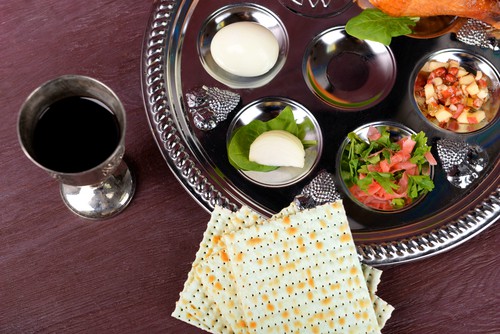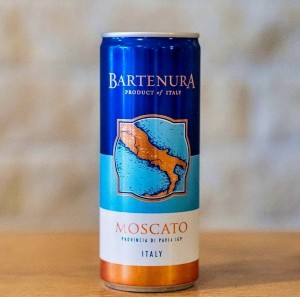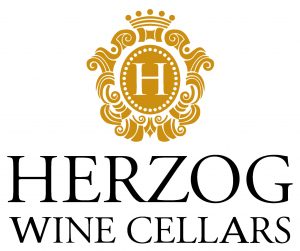

Whether the weather in New England agrees or not, it IS springtime, and the season has come where we dust off our white wine palette and dive into some delicious options. We will also highlight a couple of reds that are perfect for your Passover and Easter tables.
AN INTRODUCTION TO PASSOVER WINE
Kosher wine for Passover
Before we dive into wine recommendations, let’s do a quick overview of the kosher wine tradition:
WHAT MAKES A WINE KOSHER?
A big misconception about kosher wine is that it’s made differently from non-kosher wine or it’s been “blessed” by a Rabbi. In fact, kosher and non-kosher wines are made the same way, it’s just the handling that is a little different.
In order for wine to be kosher it must adhere to the following:
A Sabbath-observing Jew to handle the process.
Each and every ingredient added, whether in filtration or clarification along the vinification process, must be kosher.
All tools and equipment must be dedicated to kosher winemaking alone.
Aside from the constraints mentioned above, there needn’t be any difference between the techniques used to make a fine kosher wine or a fine non-kosher wine.
WHAT DOES MEVUSHAL MEAN?
Mevushal is perhaps the most misunderstood term in the kosher wine tradition.
In Hebrew, mevushal means literally boiled. However, mevushal wines are not heated to a boiling temperature. Thanks to modern-day technology, mevushal wines are flash-pasteurized to a temperature that meets the requirements of an overseeing rabbi. The technique does not noticeably harm the wine. In fact, flash-pasteurization is used at a number of very well-known non-kosher wineries, where it is thought to improve certain aromatics.
For Jewish people, however, the technique simply alters the spiritual quality of a kosher wine removing the chametz or “corrupting influence,” making it less susceptible to ritual proscription and thus pure. That means anyone—whether kosher or not—can open a bottle of mevushal wine and have it retain its kosher status. Non-mevushal, wines are more sensitive to religious constraints and must be opened and poured only by Sabbath-observant Jews.
PASSOVER WINE RECOMMENDATIONS:

Bartenura Moscato Canned WineBartenura Winery - Italy
Ovadia ben Abraham of Bertinoro, near Forlì, was a rabbi and a commentator on the Mishnah, and was commonly known as "The Bartenura." Born in the second half of the 15th century in Italy, he was a pupil of Joseph ben Solomon Colon (known as the Maharik), and became rabbi in Bertinoro, a town in the province of Forlì whence he derived his by-name, and in Castello.
This winery was named in his honor, in tribute to his Italian heritage, combining his greatness with the storied heritage of Italian winemaking. The wines have been sourced from all over the greatest regions of Italy, in pursuit of bringing the best Italy has to offer.
Bartenura Moscato, Italy
Crist and refreshing, semi-sweet, with lingering pear, tangerine, nectar and melon flavors on the finish. Bartenura Moscato by the bottle is a classic and is now available in 250ml cans because canned wine is convenient and easy to travel with for Passover or anytime.
Certification: Mevushal
Herzog Wine CellarsHerzog Wine Cellars - California
Nestled within the strawberry fields and farm rows of Oxnard, California lies Herzog Wine Cellars. Here, under the watchful eye of head winemaker Joe Hurliman, the winery combines the artisan craft of premium California winemaking with the deliberation and unyielding standard of kosher supervision and Herzog family’s heritage of perfection.

Select grapes produced specifically for Herzog wines are chosen from vineyards in California's most regarded appellations. Grown under careful watch, only the best fruits are harvested and brought to the winery. From here, Joe Hurliman searches out inspiring blends of aroma, flavors and colors, refined by the winery into masterful creations enjoyed across the globe.
Baron Herzog Lineage Cabernet, Paso Robles
Bold and rich Cabernet Sauvignon displays wonderful aromas of black cherry, boysenberry and tobacco. A soft mouth feel and pleasantly rich soft tannins.
Certification: Mevushal
Baron Herzog Variations Cabernet Sauvignon Be-Leaf Organic, Paso Robles
Organically farmed in the warm rolling hills of Paso Robles, the grapes were harvested late in the season. This late ripening provides the optimal harvest brix, tannin and acid needed for high quality winemaking without the use of sulfites. On the nose, there is plenty of bright red fruit, graphite and green notes. On the palate, the wine is medium-bodied with pleasant acid and medium tannins. This is a fruit-forward Cabernet Sauvignon, with notes of vanilla, red and black fruits, and the youth and freshness is apparent.
Certification: Mevushal
Baron Herzog Chardonnay, California
This blended Chardonnay produces a complex wine with notes of tropical fruits, citrus, apple and a hint of Vanilla. Serve slightly Chilled.
Certification: Mevushal
Kedem Concord & Malaga Wines

Kedem Concord and Malaga traditional wines are kosher for Passover as well as Kosher Year-Round. These wines use sugar cane for sweetening.
Certification: Mevushal and Kosher Year-Round
EASTER WINE RECOMMENDATION

Here’s a little-known fact about Easter Sunday: in order to make Christianity more attractive to non-Christians, the ancient Roman Catholic Church mixed the celebration of Jesus' resurrection with celebrations that involved spring fertility rituals. These spring fertility rituals are the source of the egg and bunny traditions. Whatever your belief, we think you’ll enjoy these wines on Easter Sunday or any day!
With such a celebratory history, we want to include sparkling wines and while the food on the menu pairs well with red wine, the spring weather vibe is all about rosé wine. Every wine lover will have something to enjoy at your Easter dinner - cheers!
RECOMMENDATIONS FOR YOUR EASTER WINE MENU
Gruet Brut Sparkling, New Mexico

Wonderful aromas of green apple and citrus mineral notes make for a delightful start to this traditional sparkler. Our Brut NV offers bright, crisp acidity complimented by a touch of yeast on the delightfully long finish.
Bonterra Rosé, California

Bonterra Rosé blends organic sites throughout California, with much of the fruit hailing from Mendocino, including some of our own organically-farmed estate vineyards. This delicate Grenache-based blend conjures aromas of ruby red grapefruit, red cherry, and watermelon, framed by a palate of pomegranate, red berries, a hint of peach and a suggestion of cotton candy. This beautifully dry rosé boasts elevated acidity and a crisp, lingering finish
Primarius Pinot Noir, Oregon

A perfect red wine for every Easter dinner table! Aromas of raspberries and rosehips predominate. On the palate the wine leads in with fresh raspberry fruit that evolves to cranberry and herbal notes and resolves with vanilla and pie cherry flavors. Notes of plum and cranberry linger on the finish.
Fetzer Gewürztraminer

This crisp white hits the mark sipping on its own. Enjoy honeyed apricot and peach flavors in the glass, and breathe deeply to capture aromas of rose petals and honeysuckle.
San Antonio Cardinale

Since 1917 The Archdiocese of Los Angeles granted Santo permission to make wines for sacramental and ceremonial purposes; his strong relationship with the church saved his winery. By 1933, following the Wall Street Crash and the Great Depression, nearly all of Los Angeles’ 100 wineries were affected. However, despite Prohibition, San Antonio Winery was able to flourish, becoming the number one provider of altar wines. Full of rich grape flavor, Cardinale is a refreshing dark red wine for those looking for a fun sweet red.
FROM OUR FAMILY AT HORIZON TO YOURS, WE WISH YOU A HAPPY PESACH AND HAPPY EASTER!